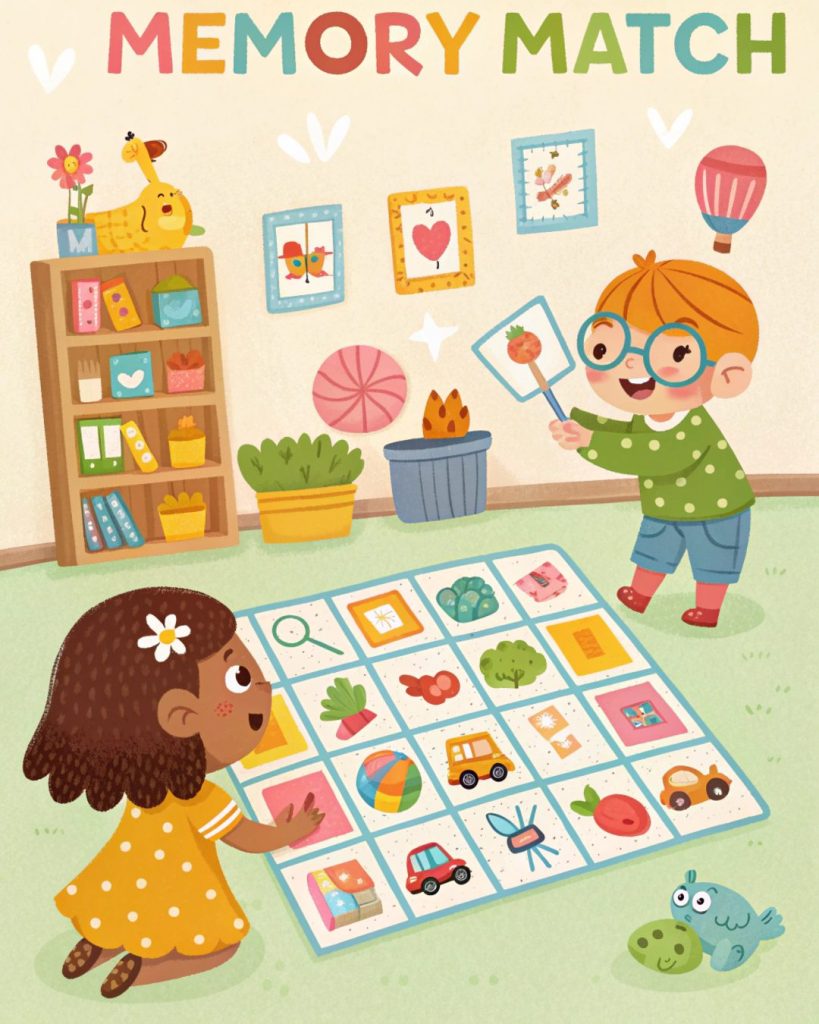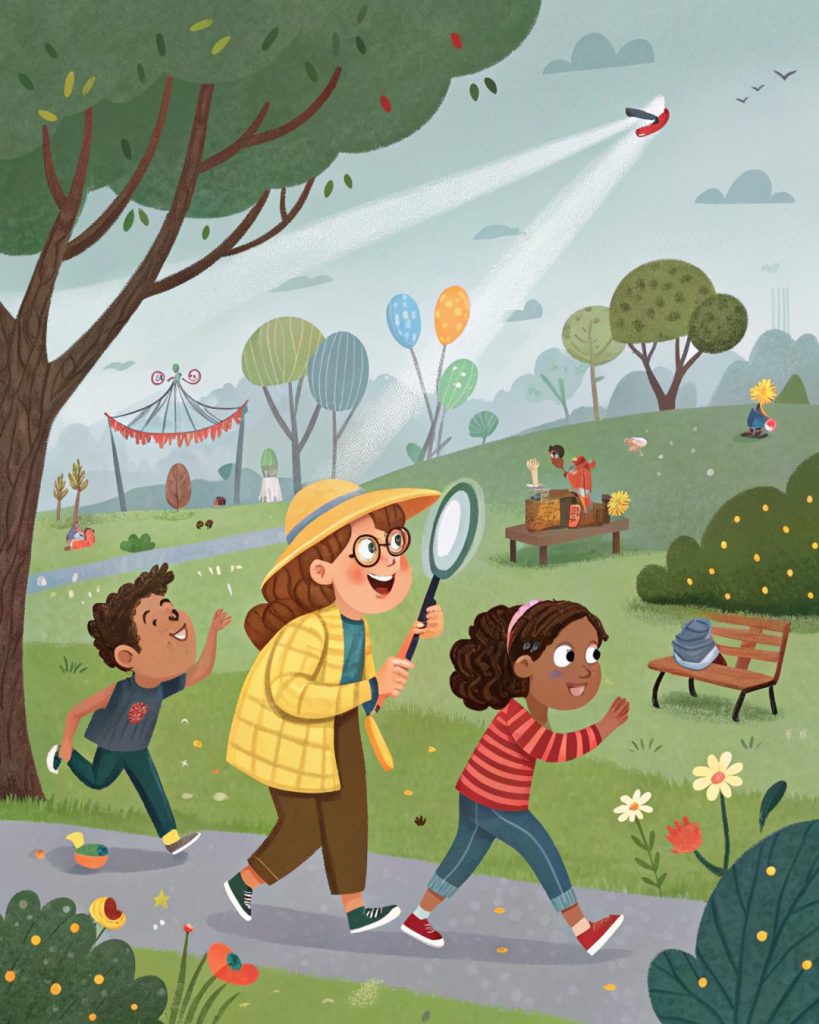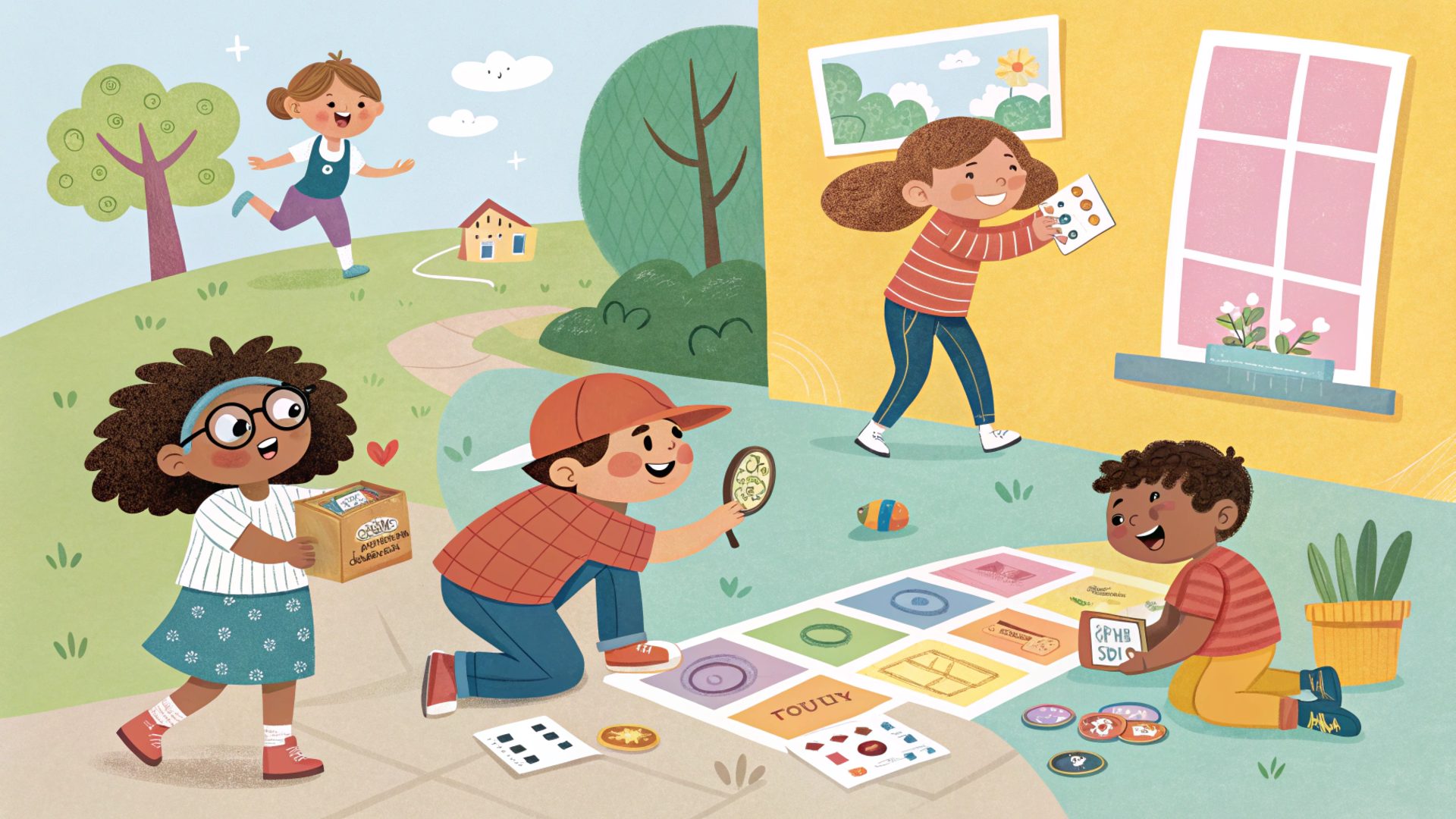As parents, we all want our little ones to grow up happy, healthy, and well-rounded. But let’s face it—keeping kids entertained while also fostering their growth can sometimes feel like a challenge.
The good news? Playtime doesn’t have to be just about fun—it can also nurture creativity, problem-solving skills, and emotional intelligence. In this article, we’ll explore seven amazing games that are not only enjoyable but also beneficial for your child’s development.
Whether you’re looking for indoor activities on rainy days or outdoor adventures in the sunshine, these games will keep your family smiling and learning together!
Engaging Play: Why Games Matter in Parenting
In today’s fast-paced world, finding time to connect with our children is more important than ever. As parents, incorporating play into daily routines helps strengthen bonds and supports cognitive, physical, and social-emotional development.
Research shows that children who engage in structured yet imaginative play tend to perform better academically and socially.
So, whether you’re playing board games at home or organizing active games outdoors, every moment counts.
Building Confidence Through Playful Learning
One of the most rewarding aspects of parenting is watching your child gain confidence through new experiences. Games provide an ideal platform for kids to experiment, make mistakes, and learn from them—all within a safe environment.
By choosing age-appropriate games, parents can ensure their children are challenged without feeling overwhelmed.
Let’s dive into some fantastic options that cater to various developmental stages.
Memory Match – A Classic Parenting Tool for Cognitive Growth

Memory Match (or Concentration) is one of those timeless classics that never goes out of style.
This simple card game involves flipping over pairs of cards to find matches, helping children improve focus, memory retention, and pattern recognition.
Benefits for Kids’ Development:
- Enhances short-term memory : Encourages kids to remember locations of specific cards.
- Boosts concentration : Requires sustained attention to complete the game successfully.
- Fosters patience : Teaches young players the value of taking turns and waiting for their opportunity.
To make it even more engaging, try creating themed versions using pictures of animals, numbers, or letters.
For older children, consider adding math problems or vocabulary words as part of the matching process. It’s a great way to sneak in educational content while keeping things lighthearted.
Simon Says – Teaching Listening Skills Through Play
Simon Says is another beloved game that has been passed down through generations. Not only does it get kids moving, but it also sharpens listening skills and impulse control.
Parents love this activity because it requires minimal setup and can be played almost anywhere—from the living room to the backyard.
How It Works:
A designated leader gives instructions starting with “Simon says,” such as “touch your toes” or “jump three times.” Players must follow commands only when they begin with “Simon says.” If someone moves without hearing the phrase, they’re out!
Parenting Takeaways:
- Improves auditory processing : Helps children distinguish between relevant and irrelevant information.
- Encourages self-regulation : Promotes discipline by teaching kids to pause before acting.
- Builds teamwork spirit : When played in groups, it fosters camaraderie among siblings and friends.
For added excitement, rotate leadership roles so each child gets a chance to lead the group. Watching them come up with creative commands is half the fun!
Scavenger Hunt – An Adventure Waiting to Happen

Who doesn’t love a scavenger hunt? This classic game transforms ordinary spaces into magical realms filled with discovery. Whether indoors or outdoors, scavenger hunts encourage exploration, critical thinking, and collaboration.
Creating Your Own Hunt:
Start by making a list of items based on your location. For example, if you’re hosting an indoor hunt, include objects like “a red sock” or “something shiny.” Outside, you might ask kids to find leaves of different shapes or rocks with unique patterns. To add a twist, incorporate riddles or clues that lead to the next item.
Why Parents Love It:
- Promotes curiosity : Sparks interest in nature and surroundings.
- Strengthens problem-solving abilities : Challenges kids to think creatively about where things might be hidden.
- Keeps energy levels high : Perfect for restless afternoons or long road trips.
Remember, the key to success lies in tailoring the difficulty level to suit your child’s age and skill set. With a little imagination, you can create an unforgettable experience that keeps everyone laughing and learning.
Charades – Acting Out Family Fun
Charades is a hilarious game that brings families together for endless entertainment. Ideal for parties or quiet evenings at home, this word-guessing game encourages communication, creativity, and humor.
Rules Made Simple:
Players act out words, phrases, or movie titles without speaking, relying solely on gestures and expressions. Other participants then try to guess what’s being portrayed. You can divide into teams or play individually, depending on the size of your group.
Benefits for Child Development:
- Develops non-verbal communication skills : Teaches kids how to convey ideas through body language.
- Expands vocabulary : Introduces new words and concepts during gameplay.
- Encourages empathy : Helps children understand others’ perspectives by interpreting actions.
If your child struggles with shyness, charades offers a low-pressure way to build confidence in expressing themselves. Plus, seeing Mom or Dad flail around trying to act out “banana peel” is sure to bring joy to any household!
DIY Obstacle Course – Active Play That Builds Strength
Physical activity is crucial for growing bodies, and building a DIY obstacle course is a fantastic way to promote movement while having tons of fun. From crawling under tables to jumping over pillows, this game allows kids to burn off excess energy while improving coordination and balance.
Setting Up Your Course:
Use household items like chairs, boxes, and cushions to design challenges tailored to your child’s abilities. Incorporate tasks like skipping, hopping on one foot, or balancing books on their heads for extra practice. Don’t forget to time each participant to add a competitive edge!
Why It’s Great for Families:
- Supports gross motor development : Enhances strength, flexibility, and agility.
- Teaches perseverance : Encourages kids to keep trying until they succeed.
- Creates lasting memories : Brings laughter and teamwork to your home.
Feel free to modify the course regularly to maintain interest and prevent boredom. Who knows? You might discover your child’s inner gymnast or future Olympian along the way!
Storytelling Game – Unleashing Imagination Through Words
Storytelling is a powerful tool for nurturing creativity and language skills. This collaborative game invites everyone to contribute a sentence or two, weaving together tales full of wonder and surprise.
How It Works:
Begin with a simple opening line, such as “Once upon a time, there was a brave knight…” Then pass the story to the next person, allowing them to add their own twist. Continue rotating until the narrative reaches its conclusion—or spirals into hilarity!
What Parents Should Know:
- Fosters imagination : Allows children to explore limitless possibilities.
- Improves literacy : Builds vocabulary and comprehension skills naturally.
- Strengthens relationships : Creates opportunities for shared storytelling moments.
For younger kids, simplify the rules by letting them describe pictures instead of crafting sentences. Older children may enjoy experimenting with complex plots or incorporating elements from favorite books and movies.
Jenga – Building Trust While Knocking Down Barriers
Jenga is a thrilling game that tests hand-eye coordination, strategic thinking, and nerves of steel.
As players carefully remove blocks from a towering structure, they learn valuable lessons about risk-taking and cooperation.
Making It Meaningful:
While Jenga itself is straightforward, you can enhance its impact by discussing themes like trust and resilience afterward.
Ask questions like, “What made you choose that block?” or “How did you feel when the tower fell?”
These conversations help reinforce important life skills beyond the game itself.
Key Advantages:
- Refines fine motor skills : Requires steady hands and precise movements.
- Cultivates patience : Encourages deliberate decision-making rather than impulsivity.
- Builds resilience : Reminds kids that setbacks are temporary and manageable.
Whether played competitively or cooperatively, Jenga remains a staple in many households for good reason. Its simplicity belies its profound potential for growth and connection.
Games aren’t just about winning or losing—they’re opportunities for growth, discovery, and bonding. By integrating these seven activities into your parenting routine, you’ll not only enrich your child’s life but also create cherished memories that last a lifetime.
Remember, the best games are those that bring smiles to faces and warmth to hearts.
So grab a deck of cards, put on your detective hat, or stack those wooden blocks—and let the adventure begin.


